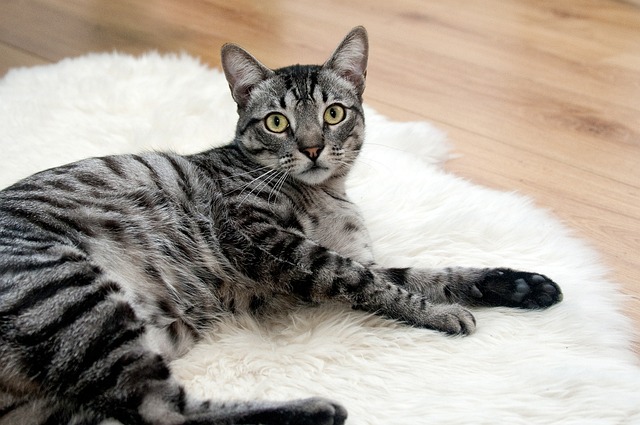Understanding and Alleviating Cat Anxiety: A Guide to Raising a Calm and Content Feline Companion
Understanding and Alleviating Cat Anxiety: A Guide to Raising a Calm and Content Feline Companion
Cats are often misunderstood as independent and aloof creatures, but in reality, they can be prone to anxiety just like humans. Understanding the nuances of cat anxiety can help you create a more harmonious home environment and strengthen the bond with your feline friend. In this guide, we’ll explore the causes of cat anxiety, expert advice on how to alleviate it, and share actionable tips for raising a calm and content cat.
Understanding Cat Anxiety
Cats, like all animals, have natural instincts and behaviors that can sometimes manifest as anxiety. This anxiety might be due to various factors, such as environmental changes, lack of socialization, or underlying health issues. Recognizing the signs of anxiety is the first step in addressing it.
- Excessive Grooming: Cats are fastidious groomers, but excessive licking or biting of their fur may indicate stress.
- Hiding: While it’s normal for cats to seek quiet spots, constant hiding can be a sign of anxiety.
- Changes in Appetite: An anxious cat may eat less or even overeat as a coping mechanism.
- Inappropriate Elimination: Urinating or defecating outside the litter box can be a cry for help.
Common Causes of Cat Anxiety
Several factors can contribute to feline anxiety, and identifying the root cause is crucial for effective intervention.
- Environmental Changes: Moving to a new home, rearranging furniture, or introducing a new pet can cause stress.
- Lack of Stimulation: Cats are natural hunters and need mental and physical stimulation. A lack of toys or interaction can lead to anxiety.
- Health Issues: Pain or discomfort from an underlying medical condition can manifest as anxiety. Regular veterinary check-ups are essential.
Expert Advice on Alleviating Cat Anxiety
We spoke with Dr. Jane Smith, a feline behaviorist, who offers valuable insights on how to calm an anxious cat. “Creating a stable environment is key,” says Dr. Smith. “Consistency in feeding times, play sessions, and even where the litter box is located can make a big difference.”
Actionable Tips for a Calm and Content Cat
Provide a Safe Space
Ensure your cat has a dedicated area where they can retreat to feel safe and secure. This space should be quiet, comfortable, and away from high-traffic areas in your home.
Introduce Interactive Play
Engage your cat with interactive toys that mimic hunting behaviors. Wand toys, laser pointers, and puzzle feeders can provide both mental and physical stimulation.
Maintain a Routine
Cats thrive on routine. Try to feed, play, and interact with your cat at the same times each day. Predictability can help reduce anxiety.
Consider Calming Aids
There are various products designed to help calm anxious cats, such as pheromone diffusers, calming collars, or supplements. Always consult your veterinarian before introducing new products.
Real-Life Example: Lucy’s Transformation
Lucy, a five-year-old tabby, was adopted from a shelter and initially displayed signs of anxiety, such as hiding and refusing to eat. Her owner implemented a consistent routine, introduced interactive play, and provided a safe space for Lucy. Over time, Lucy became more confident and began to explore her new home without fear.
Conclusion
Understanding and alleviating cat anxiety involves patience, observation, and a willingness to adapt to your cat’s needs. By recognizing the signs and implementing expert advice, you can raise a calm and content feline companion. Remember, the journey to a stress-free cat may take time, but the bond you build along the way is truly rewarding.
For more insights on cat psychology and behavior, continue exploring our site for the latest articles and expert advice.
#ChatGPT assisted in the creation of this article.




Post Comment